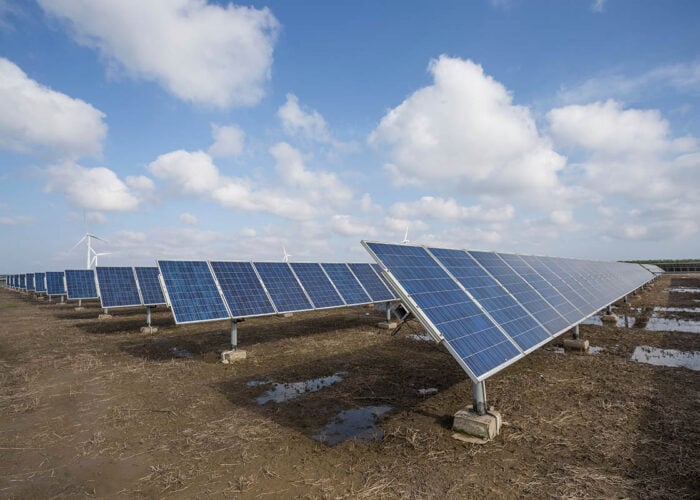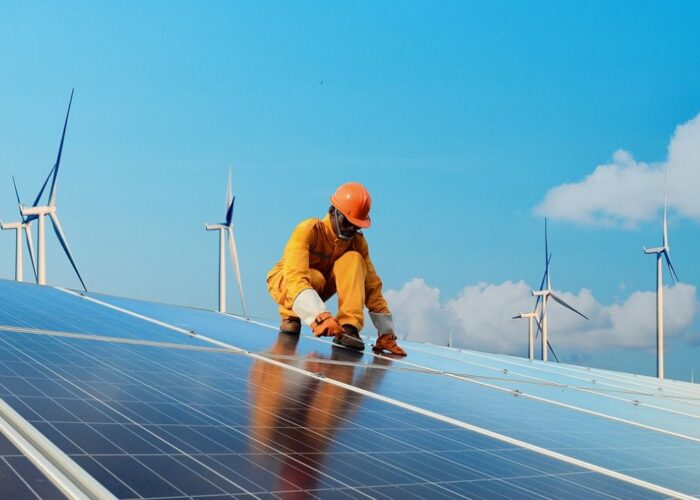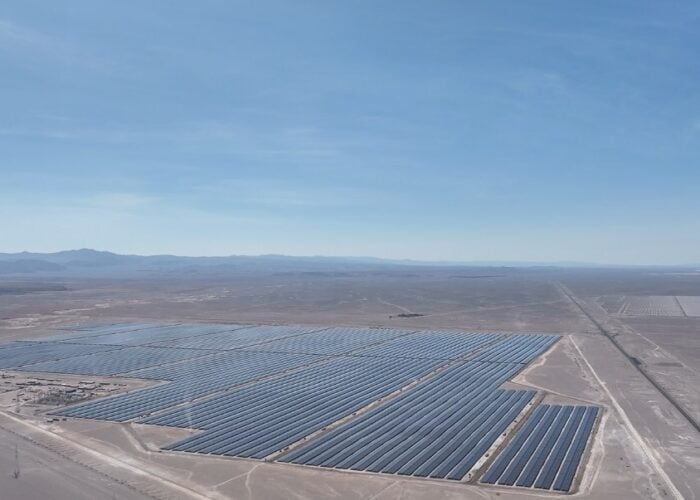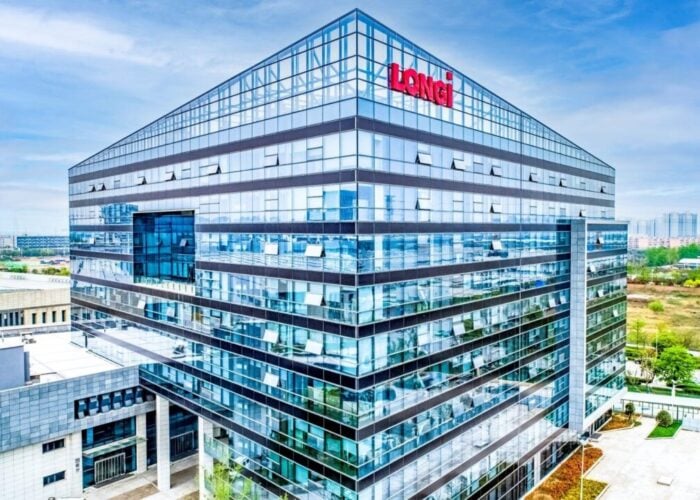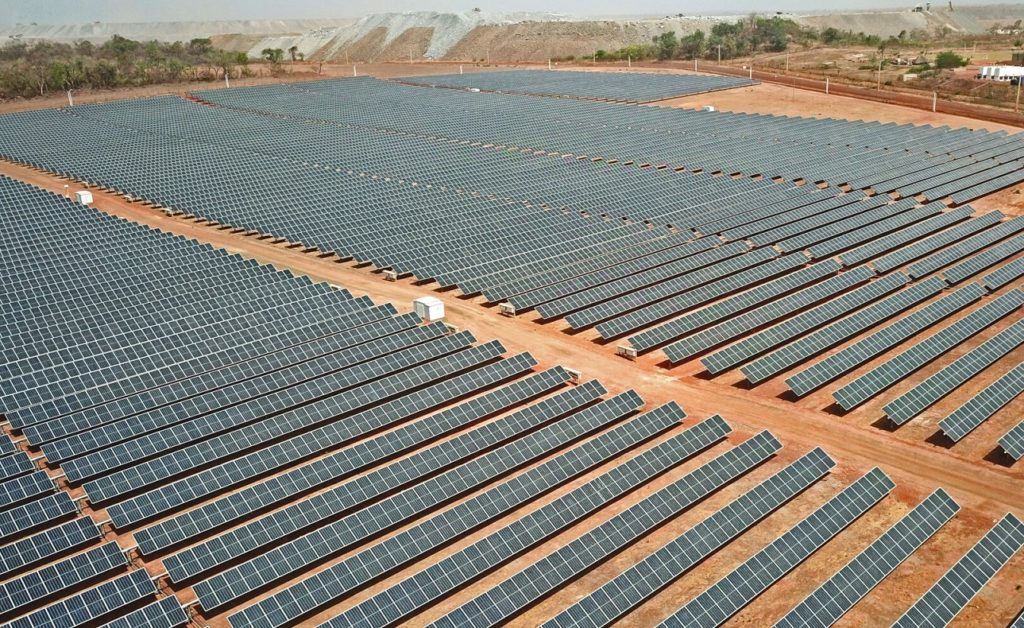
A new initiative, the Africa Renewable Energy Manufacturing Initiative (AREMI), has been launched with the aim to scale up renewable energy manufacturing capabilities in Africa.
Launched by Sustainable Energy for All (SEforALL), the African Climate Foundation, Bloomberg Philanthropies, ClimateWorks Foundation, and the Chinese Renewable Energy Industries Association, the initiative aims to unlock up to US$850 million in investments to advance a renewable energy manufacturing ecosystem across the continent.
Unlock unlimited access for 12 whole months of distinctive global analysis
Photovoltaics International is now included.
- Regular insight and analysis of the industry’s biggest developments
- In-depth interviews with the industry’s leading figures
- Unlimited digital access to the PV Tech Power journal catalogue
- Unlimited digital access to the Photovoltaics International journal catalogue
- Access to more than 1,000 technical papers
- Discounts on Solar Media’s portfolio of events, in-person and virtual
Building a renewable manufacturing capacity in Africa would have a twofold benefit for the continent as it would reduce the reliance on fossil fuel as an energy source and boost the region’s economies. It would create new jobs – with up to 14 million energy transition jobs in Africa by 2030 – economic growth (+6.4% GDP increase between 2021 and 2050 from the energy transition) and open export partnerships with other countries, the announcement said.
“Ending energy poverty, saving lives, and avoiding a greater energy crisis means investing in and scaling up sustainable and renewable development projects in Africa,” said Damilola Ogunbiyi, CEO and Special Representative of the UN Secretary-General for Sustainable Energy for All and Co-Chair of UN-Energy, adding: “That requires both public and private financing to drive renewable energy manufacturing capacity in African countries. With the Africa Renewable Energy Manufacturing Initiative, African countries will be able to shrink the energy gap, further economic growth, and enable a just and equitable energy transition.”
With the continent home to 60% of the world’s best solar resources, Africa has the potential to become a renewable manufacturing hub as it is expected to reach 650GW of solar PV capacity by 2050.
The AREMI will focus on capacity building, knowledge transfer, policy dialogues, and advocacy, as well as enabling pilot projects that drive low-emission development and carbon neutrality in Africa through four key programs:
- Enable a best-in-class business environment and drive market demand by partnering with African government officials to accelerate and support policymaking for green manufacturing.
- Build a green manufacturing workforce.
- Attract manufacturers to Africa.
- Incubate African green manufacturing projects and policies.
A vital component of the AREMI will be to look into cooperation with countries from the Global South that are already significant players in green manufacturing such as China, India and ASEAN countries.
Helen Mountford, president and CEO of ClimateWorks Foundation, said: “Partnering with, and sharing lessons learned from, renewable energy production efforts in China, India, ASEAN countries, and others, can help countries in Africa to build their own capacity and swiftly address roadblocks.”
Along with the launch of the initiative, SEforALL published a report detailing the landscape for Africa’s renewable energy manufacturing infrastructure.
A first wave of ten countries – Morocco, South Africa, Egypt, Ghana, Algeria, Tunisia, Nigeria, Namibia, Kenya and Tanzania – have been identified to have medium or high feasibility to localise solar PV or battery storage manufacturing capacities and build the tools and incentives that would increase investment opportunities.
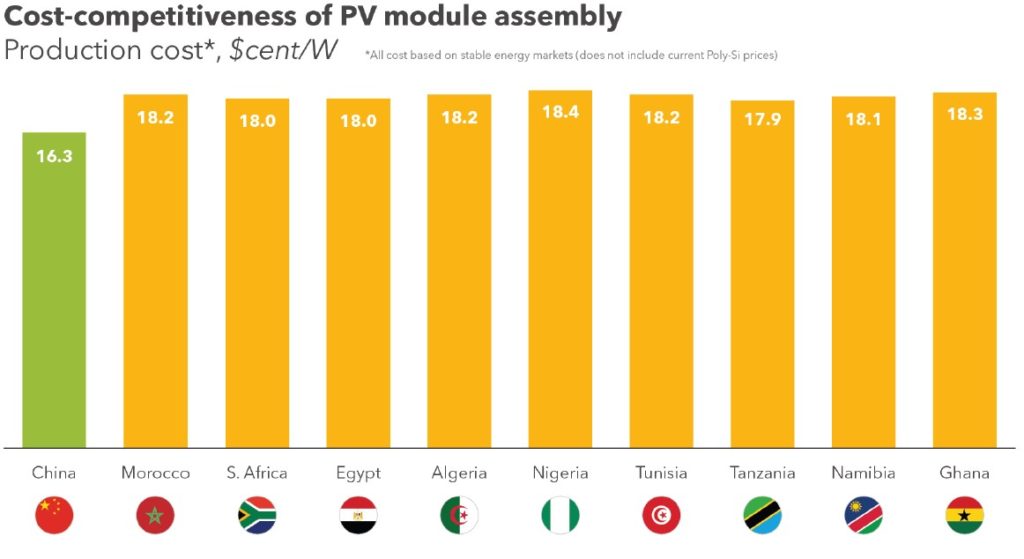
Ten opportunities across the eight countries have emerged with four in solar PV and battery materials refining, three in solar PV assembly and three in battery materials refining.
African solar PV manufacturing could start by prioritising cell manufacturing and module assembly as they require less technological and chemical complexity, labour availability and existing solar panel assembly among others.
Five countries were identified as immediately able to build a solar PV manufacturing capacity: Egypt, Tunisia, South Africa, Morocco and Algeria. Nigeria, Namibia, Kenya, Ghana, Côte d’Ivoire and Rwanda are the six following countries prioritised from a feasibility point of view.
Despite several strengths – policies (e.g. fiscal incentives, local content requirements), technical assistance, transaction facilitation and financing – outlined in the report there are still gaps and barriers that could hinder investment in the continent’s manufacturing capabilities caused by production factors, supply chain concerns, regulations and lack of incentives and local market potential.


